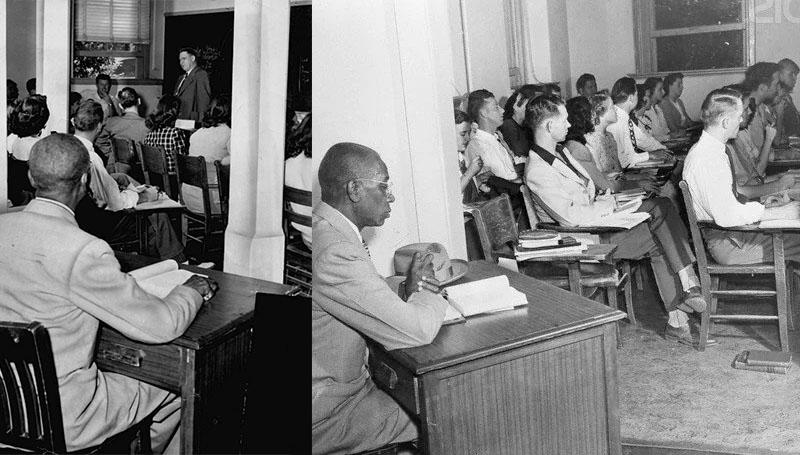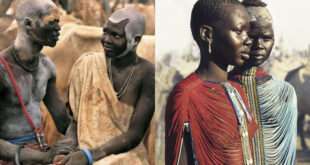George W. McLaurin provided the Oklahoma civil rights case that irreparably damaged the “separate but equal” legal position established in Plessy v. Ferguson in 1896. He earned a master’s degree from the University of Kansas and taught at Langston University, an all-black institution, until 1948. NAACP attorney Thurgood Marshall, Oklahoma attorney Amos T. Hall, and Black Dispatch newspaper editor Roscoe Dunjee all supported McLaurin’s efforts to pursue advanced professional degrees at the University of Oklahoma, along with five other African American students.
McLaurin’s cases, along with Ada Lois Sipuel Fisher’s suit, helped to open higher education to African Americans in Oklahoma, laying the groundwork for Brown v. Board of Education.
McLaurin, 61, applied to the University of Oklahoma College of Education in 1948 to pursue a doctorate in school administration. Faced with the challenge of providing educational programs for McLaurin and five other students enrolled in various fields, a statewide panel of academic deans recommended admitting black students to graduate programs.
O.U. was ordered by the Federal District Court to admit McLaurin, but he was separated into separate classroom, library, cafeteria, and restroom areas. Oklahoma changed its segregation laws to allow other black students to attend under similar conditions.
In McLaurin v. Oklahoma State Regents for Higher Education, Marshall argued that this humiliating treatment violated the Fourteenth Amendment. The Supreme Court ruled in 1950 that universities must treat African American students the same as they do other races.
His name, however, remains on the university’s honor roll as one of the top three students. These are his exact words: “Some colleagues would stare at me as if I were an animal, no one would speak to me, the teachers appeared to be uninterested in me, and they did not always answer my questions when I asked them. But I devoted myself so much that they began to seek me out after that to give them explanations and to answer their questions.”
Lesson: Forcing yourself to be accepted by people is a waste of time. Just focus and add value to yourself and people shall come seeking your help.
 The African History Truly African
The African History Truly African

